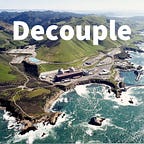Eriel Tchekwie Deranger is a member of the Athabasca Chipewyan First Nation and the Executive Director of Indigenous Climate Action. Eriel critiques pointing out that wealthy countries engaging in "climate action" tend to do so from a co-optive or colonial framework rather than one of "decolonizing." She argues this tendency has pervaded environmentalism from the outset, as a philosophy originating from the upper and middle classes that views nature as something external that must be protected from humans. From an indigenous perspective, Eriel says, nature is not an externality. She emphasizes the importance of solutions to environmental and climate issues "guided by relationships not only with each other but across species and with the natural world itself." We go on to discuss Eriel's personal grievances with the uranium mines in northern Canada, the impacts of uranium mining on indigenous communities, and how to balance the unavoidable mining requirements of energy production with the wellbeing of people and ecosystems. Eriel argues that by changing our attitudes on consumption, the land, language, culture, food systems, etc. to value relationships and reciprocity over extraction, we might become less dependent on the energy systems that many can't imagine living without. Learn more about Eriel's work with Indigenous Climate Action at https://www.indigenousclimateaction.com/
Indigenous Climate Action
Nov 18, 2021
Decouple
There are technologies that decouple human well-being from its ecological impacts. There are politics that enable these technologies. Join me as I interview world experts to uncover hope in this time of planetary crisis.
There are technologies that decouple human well-being from its ecological impacts. There are politics that enable these technologies. Join me as I interview world experts to uncover hope in this time of planetary crisis.Listen on
Substack App
Apple Podcasts
Spotify
YouTube
Pocket Casts
RSS Feed
Recent Episodes










